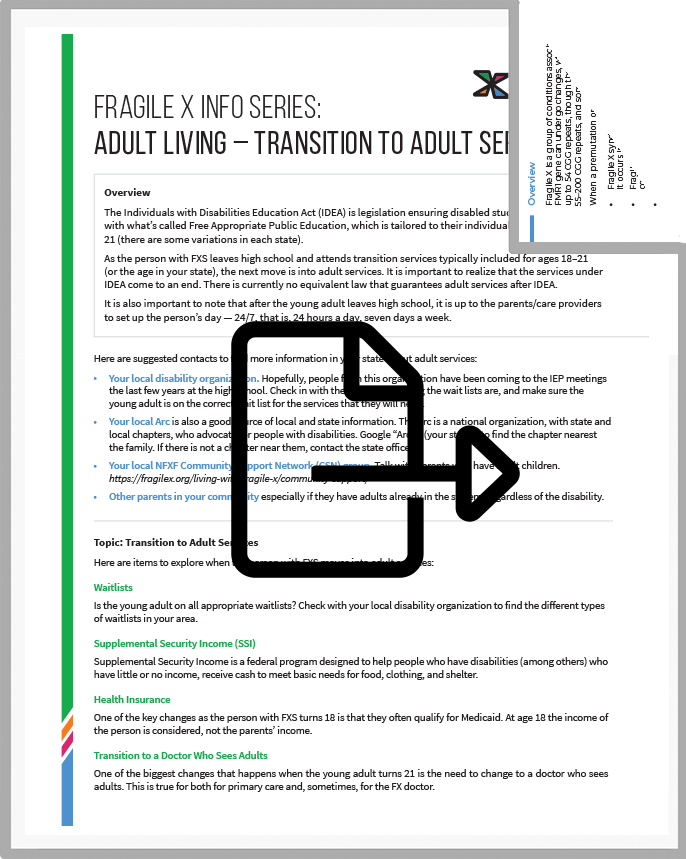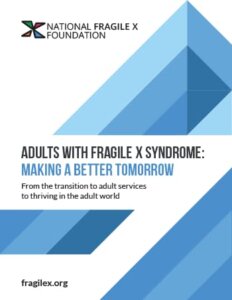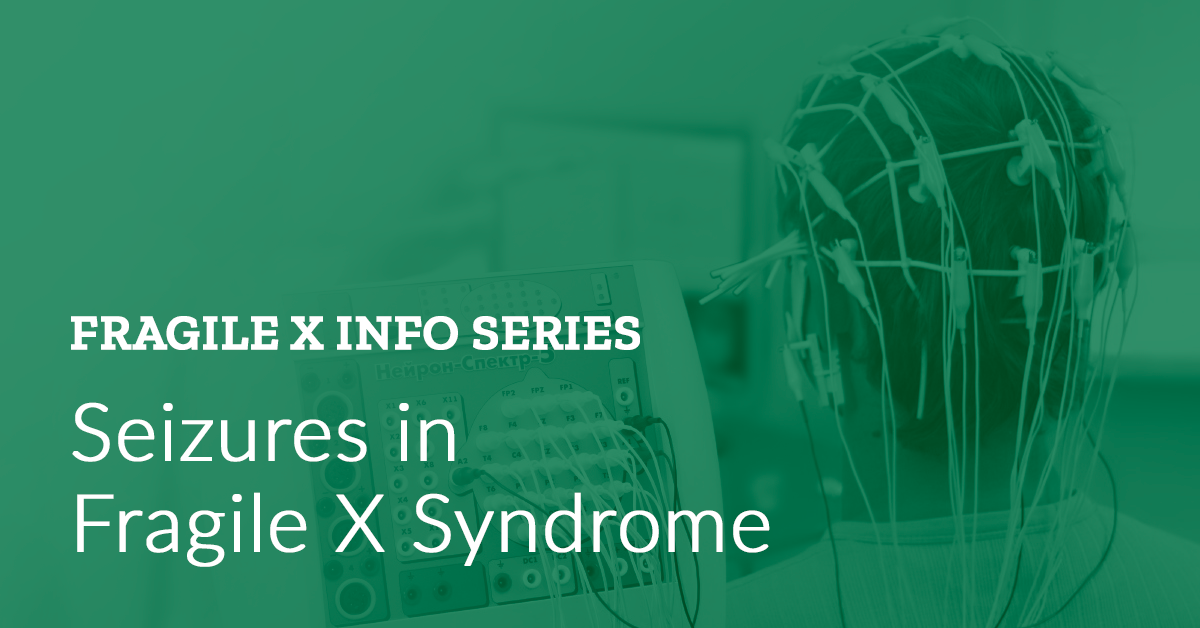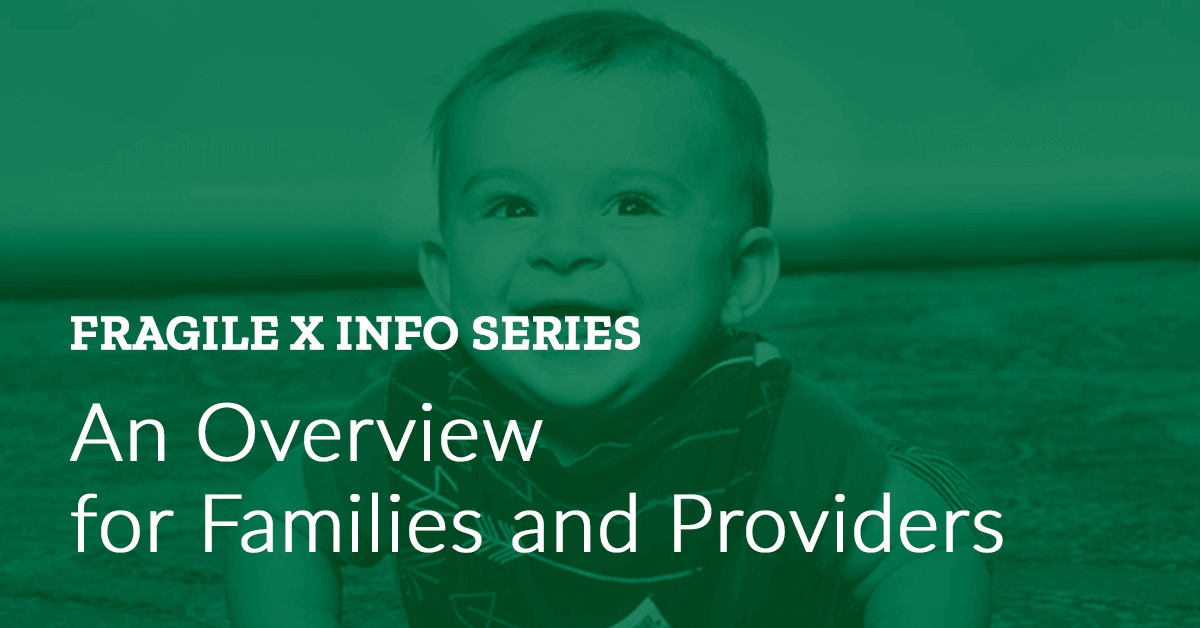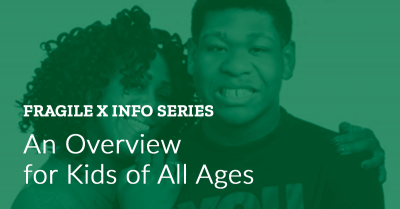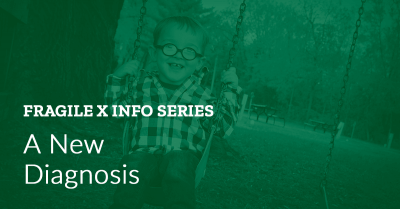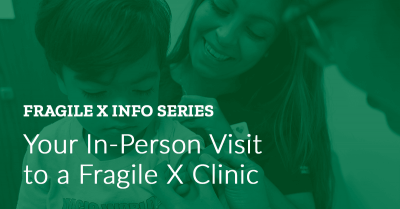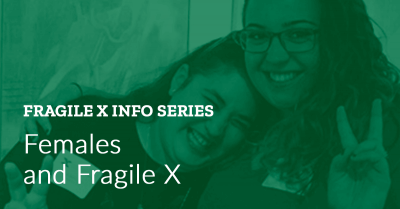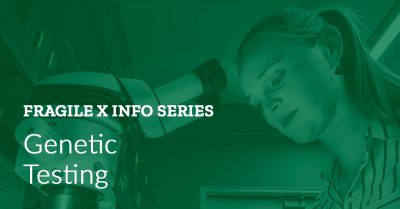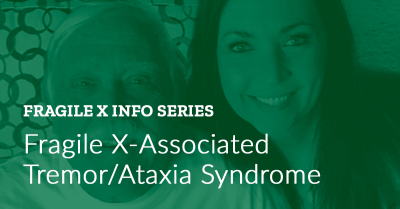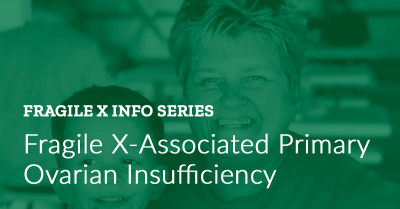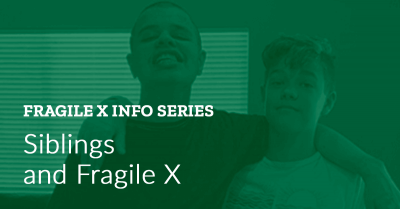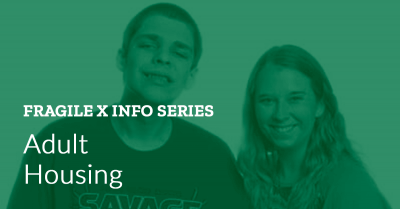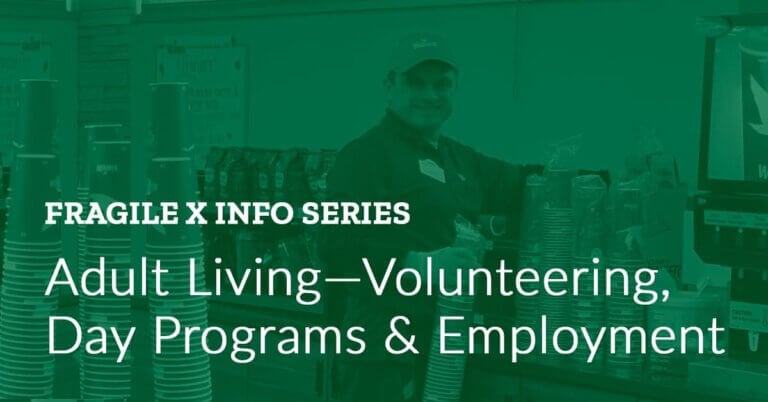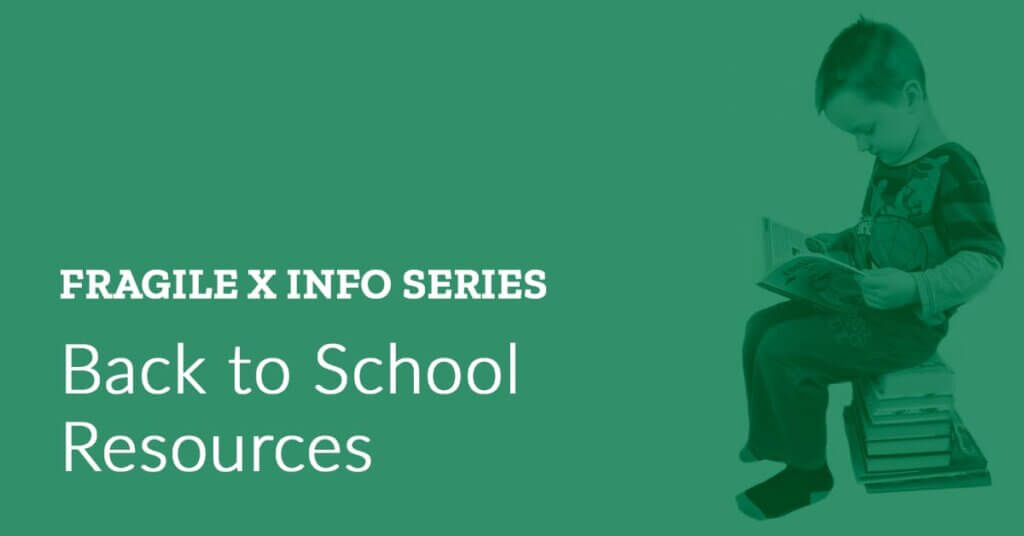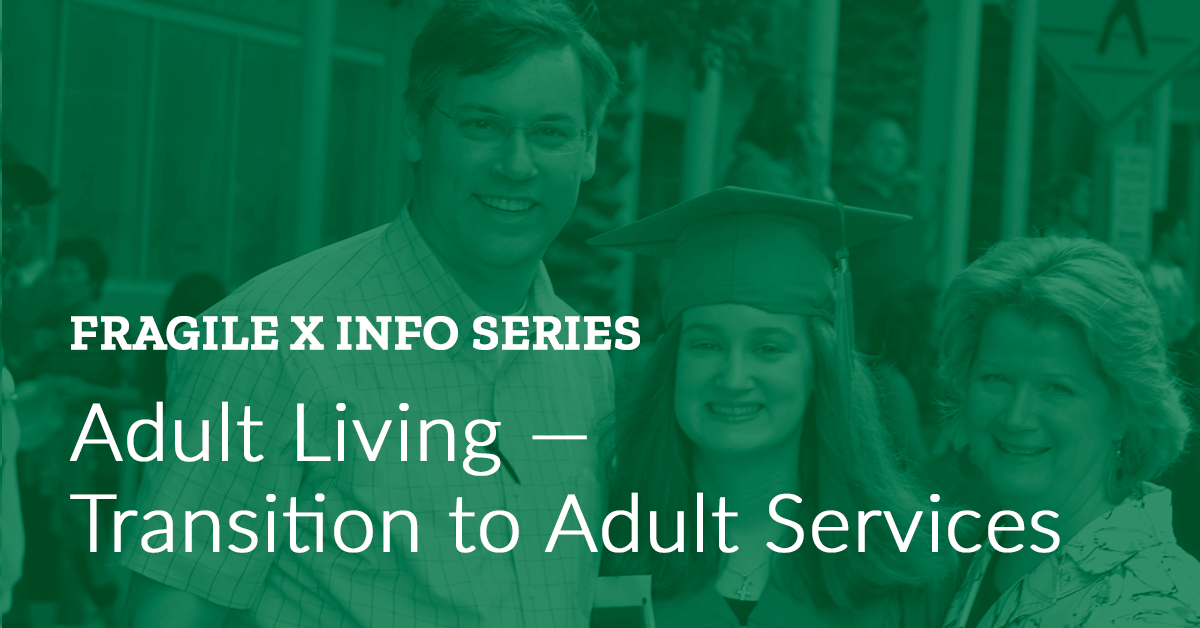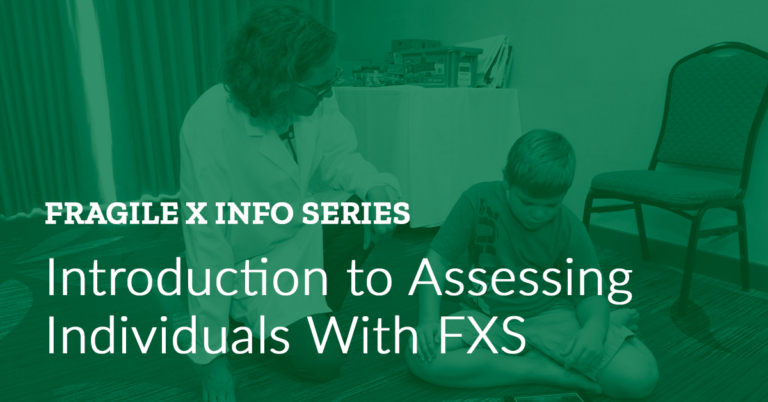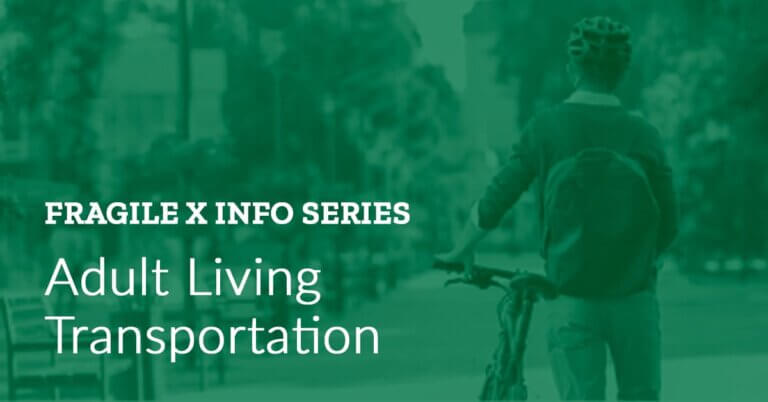Fragile X Info Series
The transition from adolescence to adulthood can be challenging for many reasons. There are many new issues to address as those with Fragile X syndrome become an adult, and the information below should help when planning for that transition.
Overview of IDEA
The Individuals with Disabilities Education Act (IDEA)↗ is legislation ensuring eligible, disabled students are provided with whatʼs called Free Appropriate Public Education↗, which is tailored to their individual needs through age 21 (there are some variations in each state).
As the person with FXS leaves high school and attends transition services typically included for ages 18–21 (or the age in your state), the next move is into adult services. It is important to realize that the services under IDEA come to an end. There is currently no equivalent law that guarantees adult services after IDEA.
It is also important to note that after your young adult leaves high school, it’s up to parents/care providers to set up their day — 24/7 that is, 24 hours a day, seven days a week.
Here are suggested contacts to find more information in your state about adult services:
YOUR LOCAL DISABILITY ORGANIZATION
Hopefully, people from this organization have been coming to the IEP meetings the last few years at the high school. Check in with them to see how long the wait lists are, and make sure your young adult is on the correct wait list for the services that they will need.
LOCATING STATE-SPECIFIC SERVICES
Find government and local disability programs through USA.gov, or search on your own for your location (try searching for: “[your state] disability programs”).
Also find your state’s plan and local centers for independent living.
YOUR LOCAL ARC
Your local Arc is also a good source of local and state information. The Arc is a national organization, with state and local chapters, who advocate for people with disabilities. Google “Arc of of [your state]” to find the chapter nearest the family. If there is not a chapter near them, contact the state office.
SEARCH LOCALLY
Seek out other parents in your community, regardless of the disability, especially if they have adults already in the system.
NFXF COMMUNITY SUPPORT NETWORK
Your local NFXF Community Support Network (CSN) group. CSN is our mission delivery arm and is comprised of volunteer-led chapters, community partners, and parent contacts. The dedicated parent volunteers who lead the CSN provide emotional and educational support to families and individuals living with Fragile X.
If you have questions about the CSN or are looking for information on a local group, you can also email csn@fragilex.org.

Transitioning to Adult Services
Here are some items to explore for when those with Fragile X syndrome move into adult services.
Wait Lists
Is the young adult on all appropriate wait lists? Check with your local disability organization to find the different types of waitlists in your area.
Supplemental Security Income (SSI)
Supplemental Security Income is a federal program designed to help people who have disabilities (among others) who have little or no income receive cash payments to meet basic needs for food, clothing, and shelter. Learn more about how to reach a program contact and to apply for SSI↗.
Health Insurance
One of the key changes as the person with Fragile X syndrome turns 18 is that they often qualify for Medicaid. At age 18, only the income of the person is considered, not the parents’ income. Learn more about how to apply for Medicaid coverage↗.
Transition to a Doctor Who Sees Adults
One of the biggest changes that happens when the young adult turns 21 is the need to change to a doctor who sees adults. This is true both for their primary care physician and, sometimes, their Fragile X doctor.
Medicaid Waivers
Medicaid waivers help provide services so people can stay in their homes and in their community. Contact the local disability organization to find the types of waivers that may apply to those with Fragile X syndrome and to find the wait list for the various waivers. Learn more on Medicaid’s state waivers list↗.
The ABLE Act
The Achieving a Better Life Experience (ABLE) Act of 2014 allows states to create tax-advantaged savings programs for eligible people with disabilities. Learn more at the ABLE National Resource Center↗.
Guardianship and Other Alternatives
Because the rules around guardianship and alternatives for decision-making vary from state to state, and there are numerous websites on guardianship, we recommend parents research the laws and options in the state where they reside. See Disability Protection and Advocacy-All 50 States↗, or search for “guardianship” with your state name, e.g., “guardianship tennessee.”
DMV-Issued Photo ID
Contact your local Division of Motor Vehicles to find what legal papers are needed in order to get this DMV-issued ID. As an adult, it’s important to have this legal ID for everything from airplane travel to going to the doctor’s office. Check out this list of all state DMV offices↗, or search for your local office by city and state.
Register for Select Service
Almost all men ages 18–25 who are U.S. citizens or are immigrants living in the U.S. are required to be registered with Selective Service. U.S. law calls for citizens to register within 30 days of turning 18. You can learn more and register on the Selective Service System registration↗ page.
Register to Vote
Many people with Fragile X syndrome enjoy learning about politics and exercising their right to vote. While the legal voting age in the U.S. is 18, voter registration rules are different in every state. Learn more at Vote.gov↗.
Financial Planning
When those with Fragile X syndrome turn 21, it’s a good time to revisit the financial plans you have in place or need to put in place.
Post-Secondary Education
This topic is covered more in its own chapter of the Adults with Fragile X Syndrome: Making a Better Tomorrow ebook.
How We Can Help
The NFXF is dedicated to serving the entire Fragile X community to live their best lives by providing the knowledge, resources, and tools, until, and even after more effective treatments and a cure are achieved. Learn more with Fragile X 101.
If you have questions please reach out to us at treatment@fragilex.org or call (800) 688-8765.
Adults with Fragile X Syndrome:
Making a Better Tomorrow
We have built the ultimate guide on transitioning into and continuing to care for adults with Fragile X syndrome. Our ebook includes chapters on:
Transition to Adult Services ♦ Transportation ♦ Housing ♦ Employment, Volunteering & Day Programs ♦ College & Post-Secondary Education ♦ Daily Living


